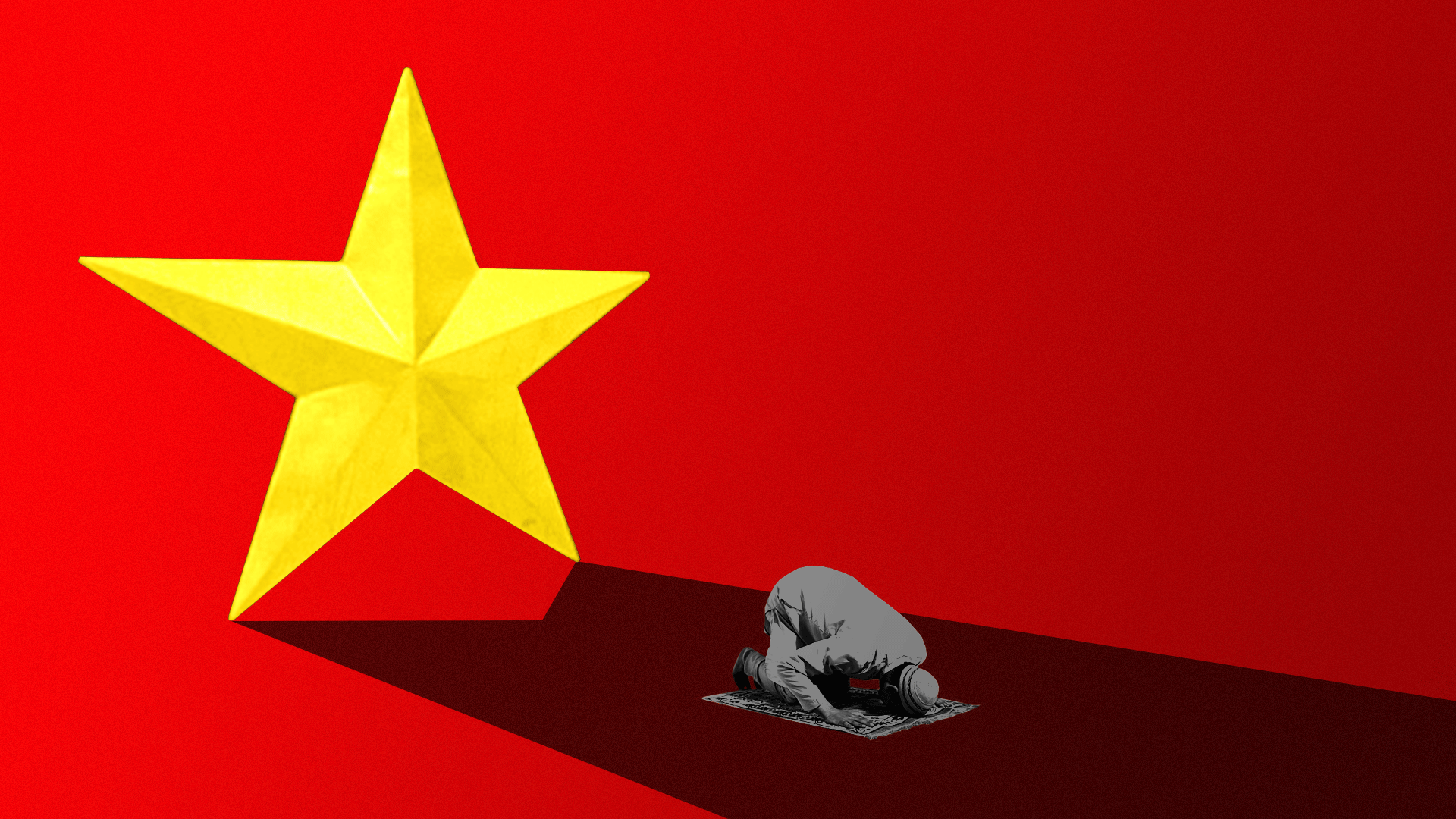Dave LawlerMay 6, 2019

China has detained an estimated 1 million to 2 million Uighur Muslims in the region of Xinjiang, and millions more live one step away from detention under the watchful eye of the Chinese Communist Party.
Why it matters: It has been two years since the internment camps first came to light internationally, and a series of reports from Xinjiang have made vivid the scale of the abuses. Yet foreign governments and corporations are content to pretend it isn’t happening.
“If right now, just about any other country in the world was found to be detaining over 1 million Muslims of a certain ethnicity, you can bet we’d be seeing an international outcry,” says Sophie Richardson, china director for Human Rights Watch.
- “Because it’s China, which has enormous power in international institutions these days, it’s hard to muster any response at all.”
- “There has been this almost childlike hope that as China gets wealthier and more secure it would change” and adapt to international norms, Richardson says. Instead, China is using its economic clout and influence at the UN to undermine those norms.
China has long waged a campaign of “assimilation and cultural destruction” in Xinjiang, but under President Xi Jinping it has “dramatically escalated,” says Omer Kanat, a prominent Uighur activist. “The camps are designed to eradicate the Uighur’s religious and ethnic identity once and for all.”
- China used to deny the camps existed; it now claims they’re voluntary and designed to root out extremism.
But a new Human Rights Watch report reveals Chinese authorities use an app to track nearly every aspect of Uighurs’ lives and deem activities that have nothing to do with terrorism — keeping to oneself, using too much electricity, donating to a mosque — suspicious.
- “These dubious criteria are being used to identify large numbers of people, many of whom are then arbitrarily locked up,” Richardson tells Axios.
- Even those who aren’t locked up live under constant surveillance, as a recent NY Times interactivedemonstrates.
What they’re saying:
- Prime Minister Imran Khan of Pakistan, which borders Xinjiang but has a deep economic reliance on China, told the FT in March: “Frankly, I don’t know much about” what’s happening to the Uighurs.
- Indonesian President Joko Widodo gave a similar answer, despite leading the world’s largest majority-Muslim country.
- UN Secretary-General Antonio Guterres appeared to tiptoe around the issue on a visit to China last week.
- Meanwhile the CEO of Volkswagen, which has a factory in Xinjiang, claimed last month that he was “not aware” of the mass detentions.
- The Organization of Islamic Cooperation went so far as to praise China in March for “providing care to its Muslim citizens,” while in February Saudi Crown Prince Mohammed bin Salman defended China’s “right” to crack down on its Muslim citizens “for its national security.”
- The U.S. and EU have spoken out, as has Turkey, but as a Council on Foreign Relations report points out, “no country has taken action beyond issuing critical statements.”
Between the lines: “This is a difficult issue to address precisely because China has the world’s second-largest economy” and is “ruthless” when challenged, says John Herbst, a former longtime diplomat now at the Atlantic Council. “Countries are not going to make this a critical issue in their relations with China.”
What to watch: “What’s happening in Xinjiang now didn’t happen overnight,” Richardson says. “If analysts like us didn’t see this coming — and I freely admit we didn’t — I wonder what we’re missing that’s coming next.”

